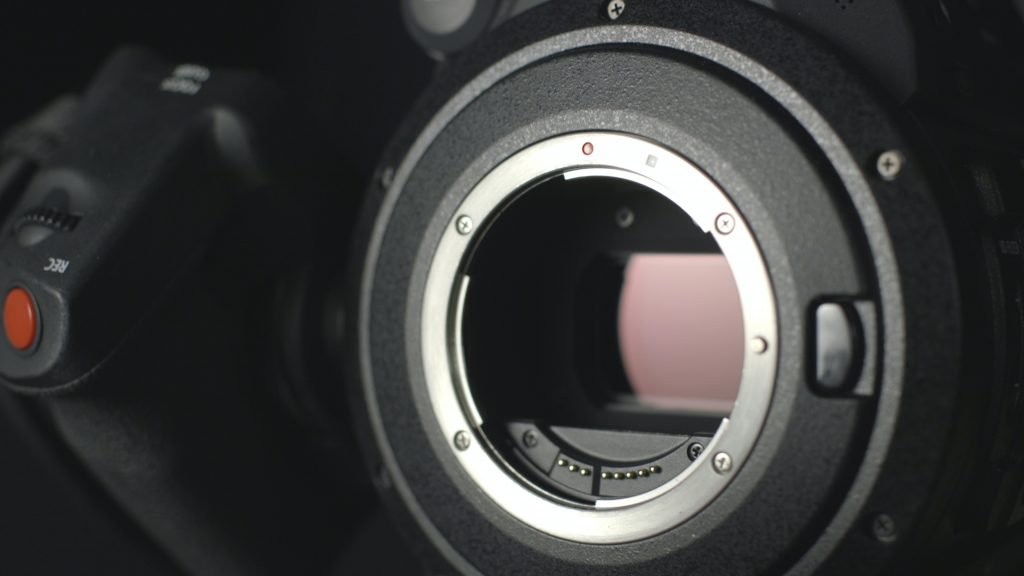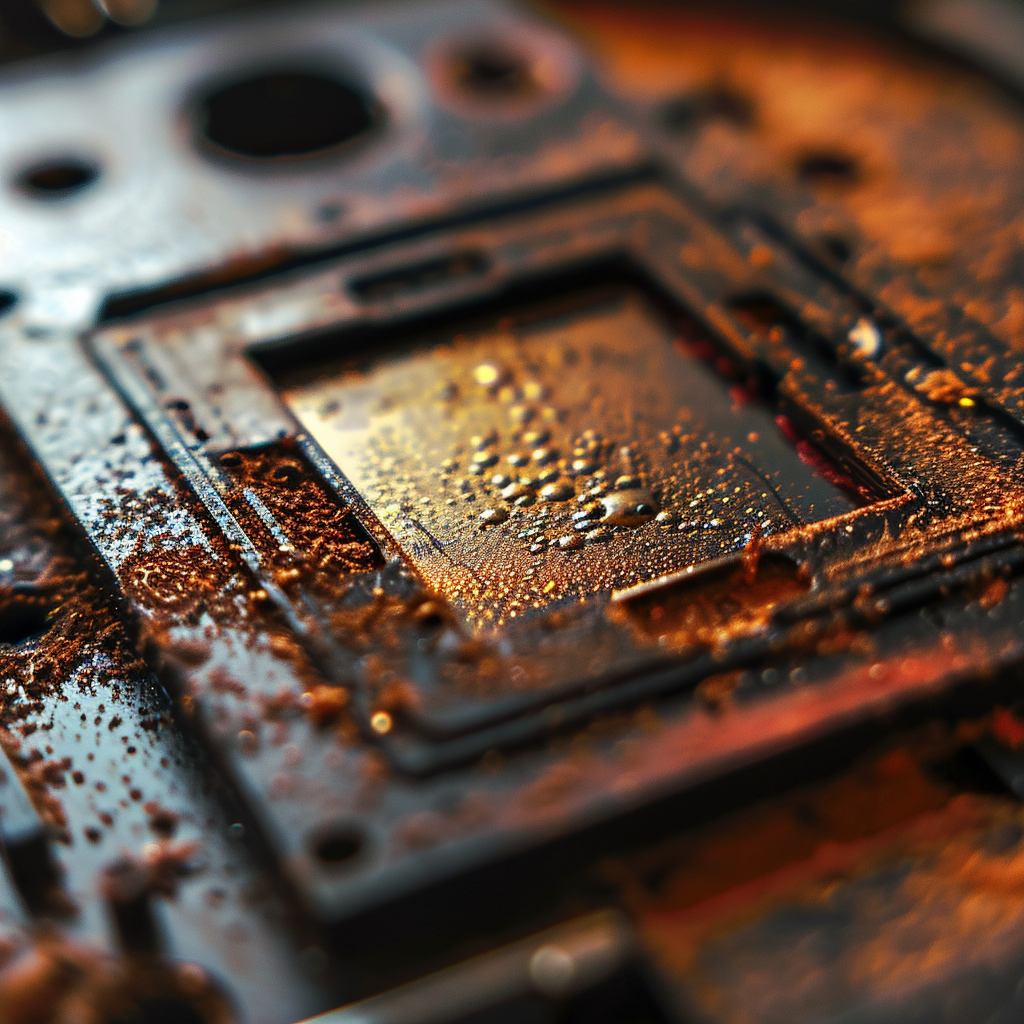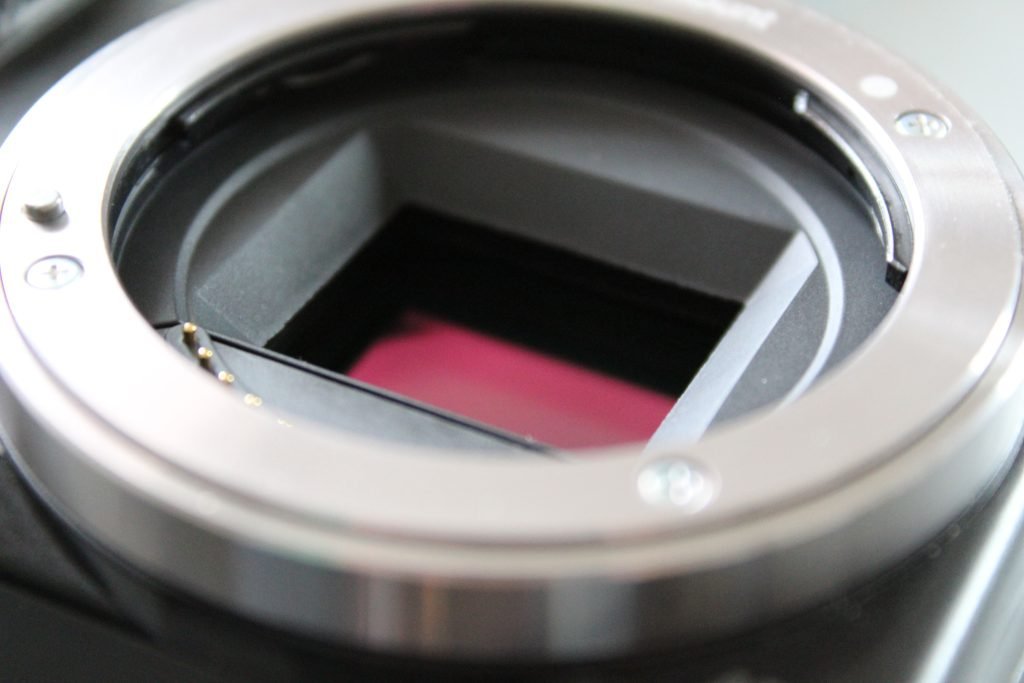Last updated on January 5th, 2024
Have you ever wondered if bright light damages a camera sensor? As photographers, we often worry about cracked or shattered lenses, but what about the camera’s sensor itself? Is it susceptible to damage from excessive light exposure? In this article, we’ll explore the intricacies of camera sensors and how they can be affected by different types of light. We’ll also provide tips on protecting your camera equipment.

Understanding Camera Sensors
A camera’s sensor is a critical component that plays a fundamental role in capturing images. It serves as the device’s “eye,” detecting and converting light into an electrical signal. This signal is then processed by the camera’s internal processor or stored on a memory card. To control how sensitive the sensor is to light, photographers adjust the ISO settings.
Can Bright Light Damage a Camera Sensor?
Since a camera’s sensor function is to absorb a lot of light the short answer is no. Bright lights do not affect a camera’s sensor unless the light’s energy focuses on a small point. Think of how kids use a magnifying glass to focus sun’s rays onto a leaf and catch it on fire. It’s sort of the same thing.

The sun rays pass through the convex shape of the large area of the magnifying glass, and focuses all the radiation into a tiny point, making a high concentration of heat. In about 50 to 60 seconds a fire will start. It’s not the light that catches it on fire but the focus of radiation from the rays.
So a small focus of heat will ruin your camera’s sensor by causing it to melt or catch on fire. This may happen by pointing your camera directly at the sun and the lens focusing the rays onto a small point on the sensor.
It is not possible for light by itself to damage a camera sensor, but intense heat or energy can.

How Do You Know if Your Sensor Is Damaged?
If your camera has been exposed to bright lights or lasers, how can you tell if damage was indeed sustained by the sensors? You start with the photographs.
Telltale Signs That Your Sensor Has Been Damaged by Bright Lights:
- Horizontal or vertical lines
- Dead pixels causing spots
- Hot pixels causing extra brightness
- Bands of multi-colored lines
If your photographs are processed, and you are seeing horizontal and vertical lines across zones of uniform color like the sky or water, then your sensor is damaged. This is the same effect you see when your printer is running out of colored ink and creates lines on the page.
Spots appearing on your photographs may, at first glance, appear to be a smudge of dirt or a blemish. They show up where your sensor has been overheated, and it is not processing the light of the image anymore. If you have been using the video function on your camera and are consistently seeing red in certain parts of the video, then your sensor has been damaged and caused a group of pixels to effectively die.
To double-check that it’s not just dirt, you can clean your sensor or take it to a camera repair shop for cleaning. If the spots are still showing up after the cleaning, then your sensor has been damaged due to exposure to bright lights and heat energy.
In contrast to dead pixels that cause dark spots, hot pixels create areas on the photo that are brighter than the rest of the photo. While this phenomenon is not as common as some of the other symptoms, it occurs when the sensor has been exposed to hot lights or other heat sources. Sometimes photos will take on a bright blue quality as well, like an overexposed photograph.
When you see bands of multi-colored lines, this is a sign that your sensor has been damaged due to white lights. Sometimes you might also see where a brighter color overshadows the other colors (for example, a cloud of magenta in the sky) in one section of the photo. If this is a recurring pattern and not an isolated incident, then it is a sign that the sensor is damaged.

How Can You Prevent Damage to Your Camera Sensor?
You can prevent or at least reduce the damage to your camera sensors brought on by bright lights. Here’s what you can do.
- Don’t point your camera directly towards bright lights.
- Invest in a UV Filter.
- Adjust shutter speeds.
Keep Your Camera from Directly Pointing Towards Bright Lights: The easiest and most obvious way to prevent light damage to your camera sensors is to just not point your camera directly at the sun, bright lights, or lasers. This seems obvious, but what if you are photographing an outdoors event like a solar eclipse, or a concert where there are lots of lights and lasers? It can be difficult to avoid the lights sometimes, especially if they are integral to the shot. Be mindful in how you are setting up the shot, and be aware of the potential damage that can happen.
Adjust Shutter Speeds for Minimal Light Exposure: If taking pictures around bright lights is inevitable, one way to minimize exposure to bright lights is to adjust the shutter speed. At a higher shutter speed, less light will get in and decrease your chances of damaging the sensors.
Invest in a UV Filter: Always make sure to buy a UV filter for your camera. The UV filter can be compared to putting sunscreen on to prevent sunburns. This protects the lens and the sensors by blocking UV rays on an extra sunny day or at higher altitudes. If you are photographing a solar eclipse, make sure to use a ND filter made from black-tinted glass to prevent or at least reduce damage to the camera’s sensors.
Conclusion
In conclusion, camera sensors are generally resilient to bright light exposure. However, it’s essential to be mindful of the factors that can lead to sensor damage, such as overheating and concentrated light. By taking precautions, such as using protective filters and keeping your camera out of direct sunlight for extended periods, you can ensure the longevity and performance of your camera equipment.

